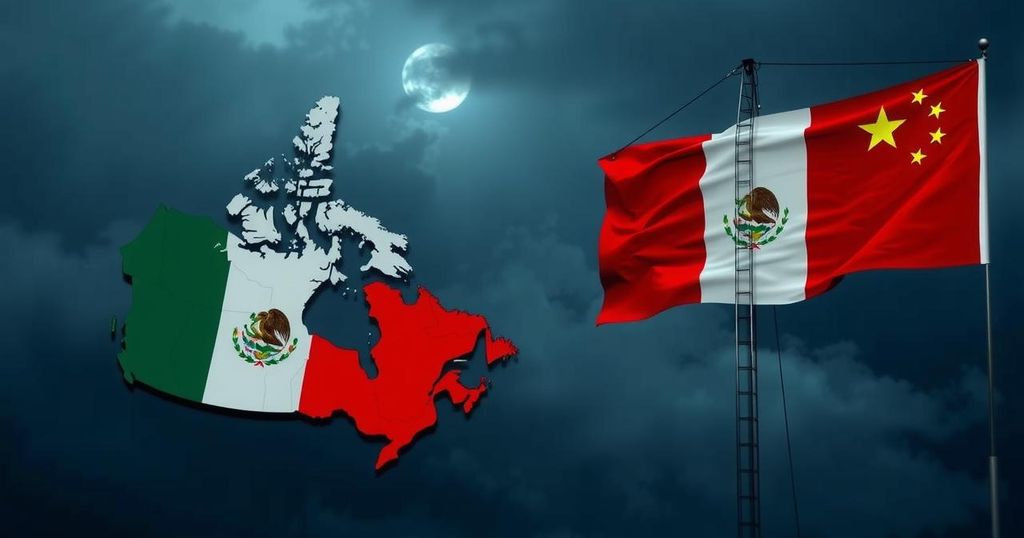Donald Trump has announced plans to impose significant tariffs on imports from Canada, Mexico, and China, potentially resulting in increased costs for American consumers. The tariffs, which aim to tackle illegal immigration and drug trafficking, could disrupt trade relations and inflate prices on essential goods such as gasoline and groceries. Experts anticipate retaliatory measures from affected countries in response to these tariffs.
Donald Trump has pledged to implement drastic tariffs on imported products from Canada and Mexico, as well as additional tariffs on China, commencing on his first day as president. His proposed tariffs include a 25% levy on products from Canada and Mexico, and a 10% levy on Chinese goods. This approach is aimed at addressing what Trump perceives as issues related to unauthorized immigration and the trafficking of fentanyl. However, economic experts warn that such tariffs could significantly raise prices for American consumers on essential goods, including gasoline and groceries, and may incite retaliatory measures from the affected countries, disrupting established trade agreements.
The tariffs are designed not only as a means of imposing economic pressure on trading partners but also as leverage in negotiations regarding immigration and trade practices. Trump has stated that the tariffs will remain until illegal immigration and drug trade cease, further complicating the relationship between the United States and its largest trading partners. Economists have expressed concern about the inflationary impact of these tariffs, particularly considering that Mexico and Canada are crucial suppliers of many goods in American markets. Meanwhile, China has vociferously denied claims that it is failing to control the influx of illegal drugs into the U.S. market.
The proposed tariff increases are a continuation of Donald Trump’s longstanding stance on trade, emphasizing protectionist policies aimed at national security and immigration. These tariffs come after a significant focus during his campaign on trade imbalances and illegal immigration. The implications of such tariffs would reverberate throughout the economy, as trade relationships with neighboring countries are re-evaluated and potential retaliatory tariffs may be enacted. Given that Canada is a primary source of oil for the U.S., any taxation could likely have immediate effects on gas prices and other consumer goods. Analysts worry that Trump’s move could undermine the U.S.-Mexico-Canada Agreement (USMCA) and result in economic complications not just for the U.S. but for its trading partners as well.
In summary, Donald Trump’s proposed tariffs on goods from Canada, Mexico, and China are indicative of a broader strategy aimed at controlling immigration and addressing perceived economic injustices. However, the economic repercussions of such actions could lead to increased consumer prices, potential retaliatory actions from affected nations, and challenges regarding existing trade agreements. Analysts caution that while tariffs may provide short-term leverage, they could destabilize long-standing trade relationships and burden American consumers.
Original Source: www.usnews.com






